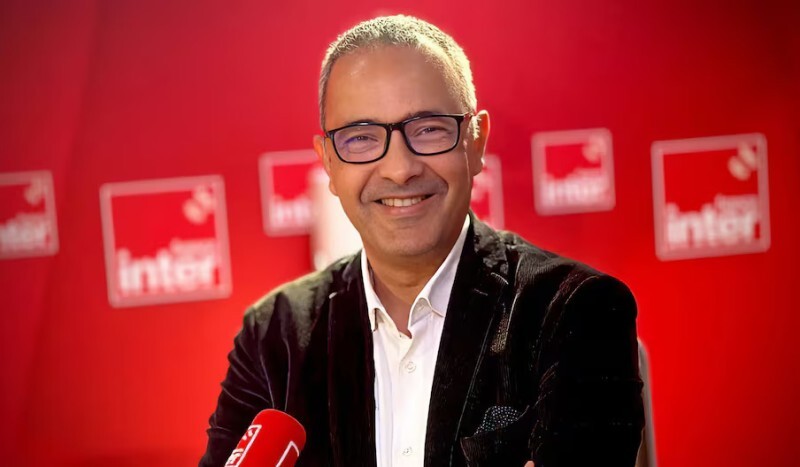Doha - Kamel Daoud, the 2024 Goncourt Prize laureate, delivered a powerful critique of the Algerian regime while expressing strong solidarity with Morocco during an interview on France Inter radio on Thursday.
The Franco-Algerian writer, who has been living in exile in France for the past 18 months, condemned the Algerian government’s attempts to create discord between the two North African nations.
“I will never wage war against Morocco, I will never let my children wage war against Morocco, I will never be the enemy of Morocco,” Daoud declared emotionally during the “Le Grand entretien” program, hosted by Léa Salamé and Nicolas Demorand.
The acclaimed author, whose latest work “Houris” has been banned in Algeria, emphasized the historical bonds between the two nations, specifically highlighting Morocco’s support during Algeria’s independence struggle.
“Morocco is a country that welcomed Algerian independence fighters. Morocco is also Algeria, with a different flag,” he stated.
Daoud strongly rejected the Algerian regime’s narrative regarding border disputes, stating, “This story of pitting the two countries against each other based on a border or Sahara issue, I will never subscribe to it.”
He further affirmed his connection to both nations, declaring, “I will visit Algeria one day, freely, and I will visit Morocco because it is also my country.”
In the same interview, Daoud sharply criticized the Algerian regime, describing it as “weak, vindictive, and violent.”
He expressed particular concern about the recent arrest of fellow Algerian writer Boualem Sansal, who was detained on November 16 for allegedly threatening state security after discussing historical border issues between Morocco and Algeria.
The Goncourt Prize winner painted a damning picture of the current Algerian leadership, describing how the regime “attacks your relatives, your friends, your families, your children.”
He explained that the government maintains its grip on power by promoting a narrative that “the whole world is against us” and that “there is an international conspiracy against us.”
Addressing the broader state of his native country, Daoud characterized Algeria as “a country that builds its hyper-nationalism on the rejection of the world.”
He expressed personal feelings of “anger, a sense of humiliation, and degradation of Algeria’s image,” noting the sacrifices that had been made for the country.
The writer also defended Sansal’s right to express his views on historical borders, criticizing the hypocrisy of Algerian intellectual elites who question Sansal’s freedom of thought while remaining silent about Islamist preachers who regularly challenge Algeria’s borders and history.
Daoud’s comments come at a time of heightened tensions between Algeria and Morocco, with his stance representing a growing voice among Algerian intellectuals advocating for reconciliation between the neighboring countries while criticizing their government’s confrontational approach toward Morocco.
The Franco-Algerian writer, who has been living in exile in France for the past 18 months, condemned the Algerian government’s attempts to create discord between the two North African nations.
“I will never wage war against Morocco, I will never let my children wage war against Morocco, I will never be the enemy of Morocco,” Daoud declared emotionally during the “Le Grand entretien” program, hosted by Léa Salamé and Nicolas Demorand.
The acclaimed author, whose latest work “Houris” has been banned in Algeria, emphasized the historical bonds between the two nations, specifically highlighting Morocco’s support during Algeria’s independence struggle.
“Morocco is a country that welcomed Algerian independence fighters. Morocco is also Algeria, with a different flag,” he stated.
Daoud strongly rejected the Algerian regime’s narrative regarding border disputes, stating, “This story of pitting the two countries against each other based on a border or Sahara issue, I will never subscribe to it.”
He further affirmed his connection to both nations, declaring, “I will visit Algeria one day, freely, and I will visit Morocco because it is also my country.”
In the same interview, Daoud sharply criticized the Algerian regime, describing it as “weak, vindictive, and violent.”
He expressed particular concern about the recent arrest of fellow Algerian writer Boualem Sansal, who was detained on November 16 for allegedly threatening state security after discussing historical border issues between Morocco and Algeria.
The Goncourt Prize winner painted a damning picture of the current Algerian leadership, describing how the regime “attacks your relatives, your friends, your families, your children.”
He explained that the government maintains its grip on power by promoting a narrative that “the whole world is against us” and that “there is an international conspiracy against us.”
Addressing the broader state of his native country, Daoud characterized Algeria as “a country that builds its hyper-nationalism on the rejection of the world.”
He expressed personal feelings of “anger, a sense of humiliation, and degradation of Algeria’s image,” noting the sacrifices that had been made for the country.
The writer also defended Sansal’s right to express his views on historical borders, criticizing the hypocrisy of Algerian intellectual elites who question Sansal’s freedom of thought while remaining silent about Islamist preachers who regularly challenge Algeria’s borders and history.
Daoud’s comments come at a time of heightened tensions between Algeria and Morocco, with his stance representing a growing voice among Algerian intellectuals advocating for reconciliation between the neighboring countries while criticizing their government’s confrontational approach toward Morocco.

